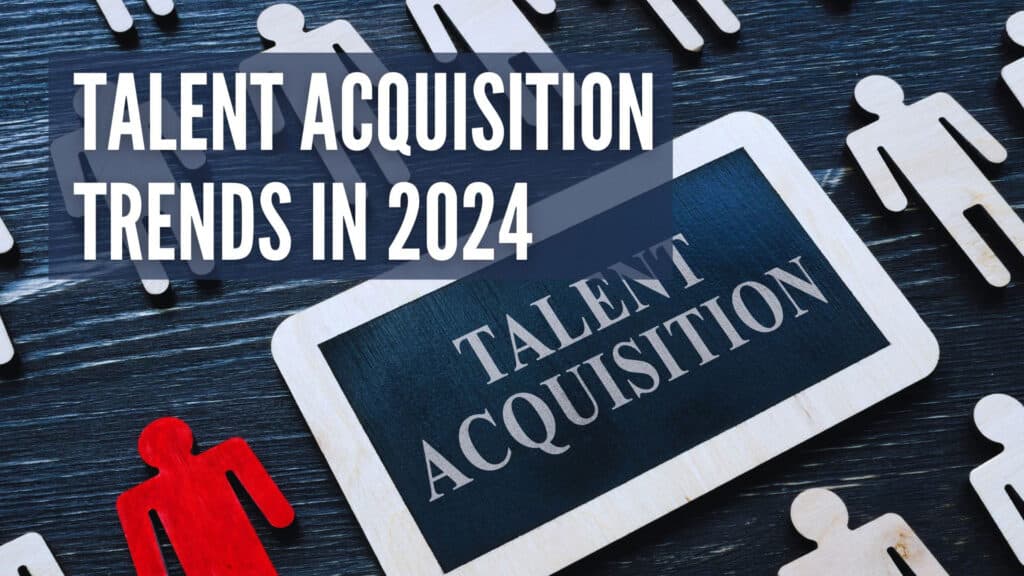
“The strategies deployed [by talent acquisition and human resources] could impact critical business outcomes for the rest of the decade,”
– Mike Cooke, Brandon Hall Group CEO
A crucial aspect of any organization’s success is talent acquisition (Anita, 2019). Most organizations have already recognized that one of its best assets is its employees, hence it is fundamental for businesses to ensure that the right person for the right job is secured in order to address core organizational needs. However, constant changes in the workforce have necessitated the acceleration of the transition to digital platforms. These changes have underscored the significance of technological advancements to ensure uninterrupted operations. Subsequently, due to this, changes in the future of talent acquisition have dramatically started to emerge.
Challenges in Talent Acquisition

According to Das (2017), the growing demands in talent acquisition have fostered varied challenges, to include:
Globalization
Accordingly, the emergence of an excessively mobile talent pool has proved to be a key challenge in the hiring of the right talent. It has also significantly impacted the talent acquisition landscape. Furthermore, the study stated that adding to this challenge is the difficulty of finding a replacement for outgoing skilled employees which is creating pressure on resourcing teams and forcing them to produce effective talent acquisition strategies in order to identify, attract and retain the best and brightest talents.
Skills shortage
Talent acquisition is geared towards building a stronger company, fostering teamwork and boosting productivity and efficiency. Hence, talent acquisition strategies are particularly critical for companies that are facing the greatest skill shortage. Nonetheless, successful organizations are projecting future needs and are always looking for the best talent commensurate with the roles critical to the achievement of faster growth for the company. This is besides helping the company find the right talent in a short period of time capable of leading the said growth forward.
Competition
The right talent is not easy to find, and the growing competition for the right talent is not helping organizations as it fosters higher costs at the expense of businesses. To meet this challenge, most companies employ the “Always Be Cultivating (ABC)” Strategy. As part of this strategy, most companies focus their efforts on attracting and retaining employees as it does on seeking and keeping customers. To add to this, companies advertise their respective cultures via social media to attract talent.
Latest Trends in Talent Acquisition

To address these challenges human resource professionals continue to re-invent traditional practices to adapt to the evolving landscape of the workforce. In a study conducted by Fazila Zagade and Dr. Arjita Jain (2022), the following trends are seen to influence and revolutionize the future of talent acquisition:
Predictive Analysis
Accurate data coupled with clear analytics is critical for companies to acquire better results in sourcing, interviewing and assessing job applicants. Predictive analysis provides human resource professionals with deeper insights into the best candidates suited for the job as compared to those who are not actively seeking new opportunities. It is far different from traditional data analysis which only provides the “what” and “why”.
Artificial Intelligence (AI)
AI is currently a pervasive topic in human resources as organizations started using it to simplify routine tasks, such as the process of recruitment. Aside from the said process, there are already companies that employ AI for talent management, training and development, as well as performance management processes. AI as a tool is deemed to foster both efficiency and effectiveness.
E-Recruitment
Also known as online recruitment, which refers to the utilization of the web, software, and other technologies to attract, assess and recruit desired candidates. This platform provides a simpler and more efficient venue for companies to screen job applicants. This includes social media recruiting and through the use of different software such as, but not limited to Applicant Tracking and HRIS.
Aside from these technological innovations, the study also cites the following as trends that human resource professionals should focus on to attract, acquire and retain the best and the brightest talents:
Employee’s Experience
In the contemporary world, job candidates want more than a competitive salary. With the rise of attention to mental health, job seekers also consider companies that can provide them with a positive experience through a positive working environment. This particular element, most of the time, determines the employees’ decision to either join the company or not.
Work Flexibility
With the growing competition among companies to source out the right people, an increasing number of companies have started to be creative with the benefits they offer. And with the COVID-19 pandemic opening the doors to remote work, several employers, as well as employees have started to see the appealing benefit of this type of work arrangement, especially with the elimination of geographical limitations which has provided employers with access to global talent.
Moving Forward

Jose and Asha (2019) suggests that innovation plays a crucial role in the acquisition of talents, which is why the adoption of various technologies and strategies such as big data analysis, artificial intelligence, chatbot, social media, video interview, teleconferencing, among others have positively affected the growth and development of varying businesses, companies and industries through the acquisition and creation of a pool of skilled workforce.
And unlike in the past where the main goal of a business is to generate profit, businesses nowadays formulate business strategies geared towards achieving the best use of human capital. Hence, to overcome and succeed in the volatile business environment, talent acquisition practices must be leveled up to address the growing organizational needs of businesses, companies and industries, and at the same time of the employees.
References:
Anita, R. (2019). Effective strategic talent acquisition process – a conceptual study. Gavesana Journal of Management, 11(1), 42-51.
Das, G. (2017). Talent Acquisition: It’s evolving Pattern. IRA-International Journal of Management & Social Sciences (ISSN 2455-2267), 6(1), 45-51. doi:http://dx.doi.org/10.21013/jmss.v6.n1.p7.
Sajin Jose and P. Asha. (2019). Innovation in Recruitment and Talent Acquisition: A Study on Technologies and Strategies Adopted for Talent Management in IT Sector. International Journal of Marketing and Human Resource Management, 10(2), 2019, pp. 1–8. http://iaeme.com/Home/issue/IJMHRM?Volume=10&Issue=2
Zagade, F., & Jain, A. (2022). Talent Acquisition Process and Contemporary Trends in Recruitment. NRCD’s Business Review: e-Journal, 3(1), 1-8.

